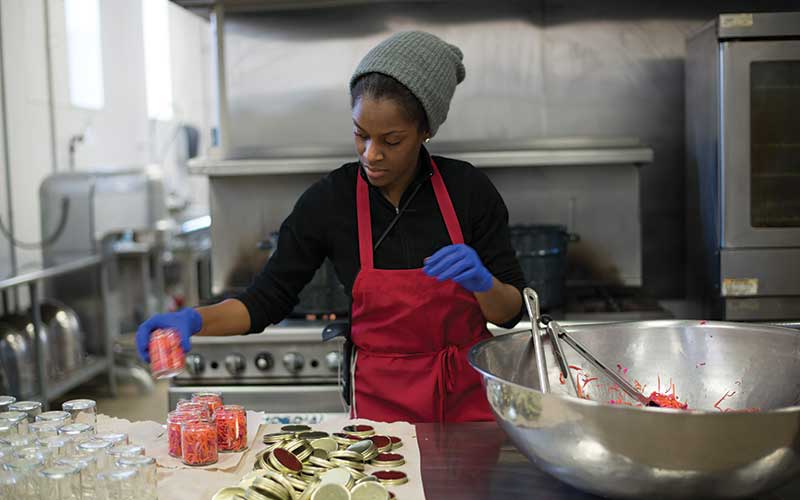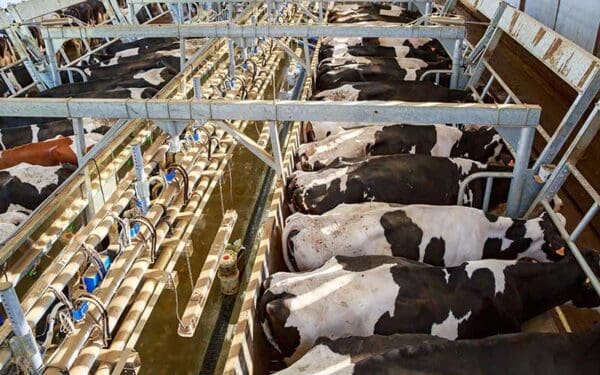
Connecting fledgling food businesses with commercial kitchens at neighborhood schools, churches, synagogues, or other community organizations can help the local food movement grow. Photo: Lucas Mulder
As summer winds down, the delicious local fruits and veggies at roadside stands and farmers markets can make even the most amateur home cook among us feel like a five-star chef. And while none of us here at CLF will be opening a food business anytime soon, plenty of innovative food entrepreneurs are producing delicious products chock full of New England-grown ingredients.
Many of these first-time entrepreneurs need access to kitchen space to create their products and grow their business, but they don’t know where to turn to find affordable, available space. Often, that space can be found just around the corner or down the block – in the kitchen of their local school, church, synagogue, or healthcare facility.
The key, of course, is to bring them together. That’s why CLF has just released a new guide to opening up existing kitchens so that entrepreneurs and community groups can get cooking.
Sharing Kitchen Space Can Make a Difference
Most neighborhoods have lots of commercial-grade kitchens to share. By opening them up during off hours, schools, religious institutions, municipal buildings, healthcare services, and others can help start-up businesses achieve their goals. This “community use” approach takes advantage of existing community resources and makes them more widely available to food entrepreneurs and community groups.
Sharing an existing kitchen is a win-win. The host organization can benefit by maximizing use of its space and earning rental income, all while helping to create economic opportunity for neighborhood entrepreneurs and local growers. Those entrepreneurs get reasonably priced access to a kitchen space to develop their products. And community groups benefit from having a place to gather to cook a locally grown meal, host a cooking class, or prepare food for donation.
New Guide Answers Key Questions for Community Groups
To help connect existing kitchens and entrepreneurs who need them, CLF’s Legal Food Hub has developed a legal guide for community kitchens and their users. It provides an overview of key legal issues that hosts and users should consider, such as which permits and licenses to obtain, how to manage risk, and how to draft a lease agreement.
The guide is free to download here. We hope you’ll share it with your local community group, school, church, synagogue, or other business with a kitchen to spare – and, of course, pass it along to your favorite food startup.
As fall arrives, we’ll get to enjoy more fresh produce grown by our local farmers. And, if we’re lucky, we’ll taste delectable products crafted from that food by New England food entrepreneurs.




